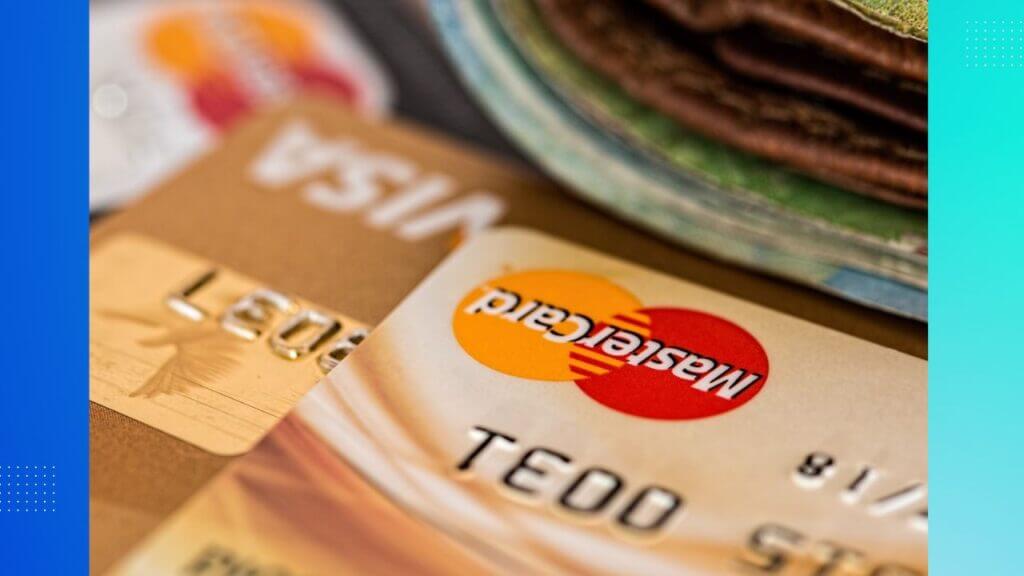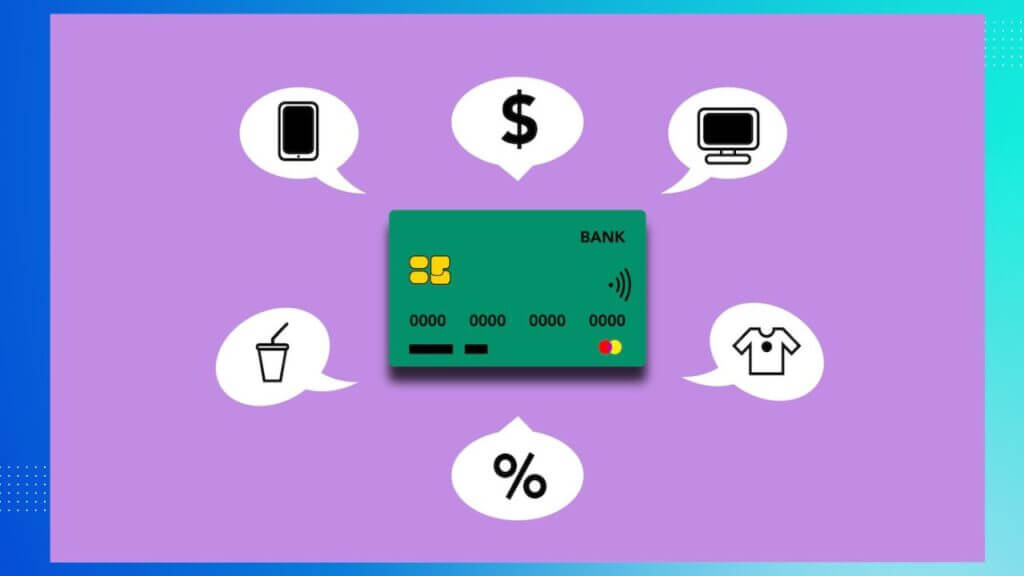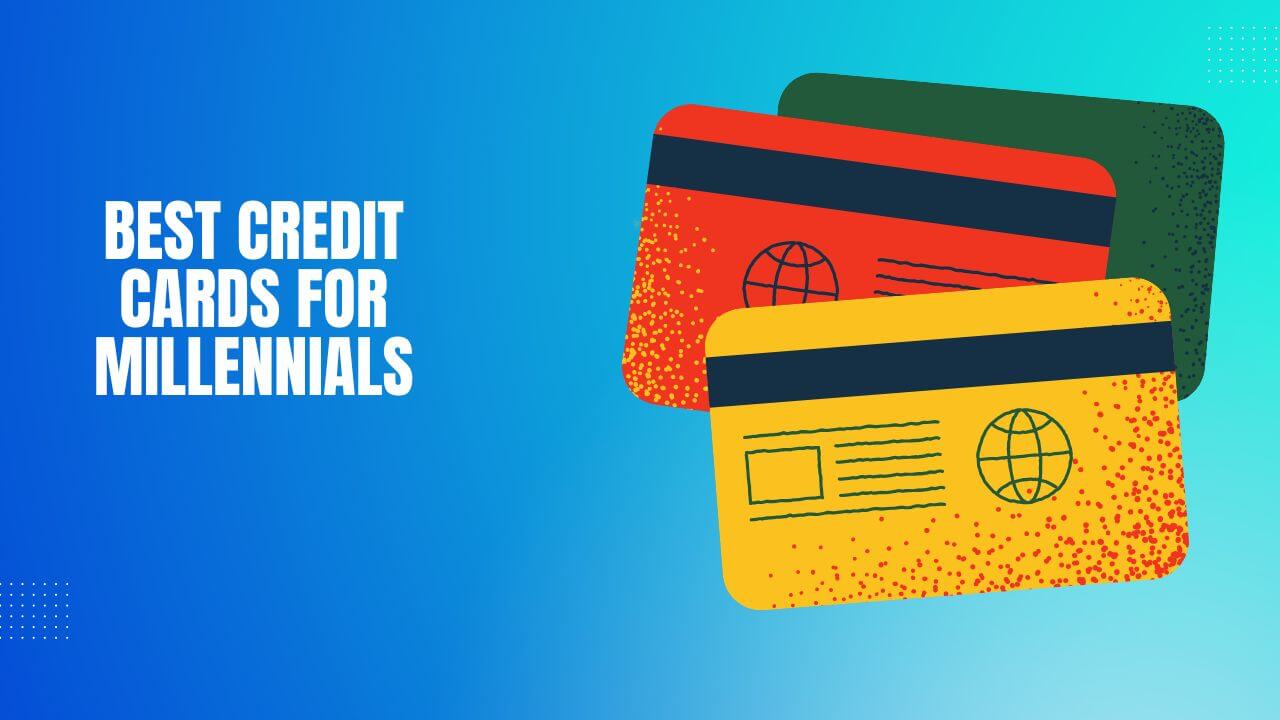Credit cards have revolutionized the way we manage our finances.
According to a report by the Consumer Financial Protection Bureau, millennials use credit cards more frequently than any other age group, with 83% of millennials reporting that they have at least one credit card.
However, this widespread usage comes with a caveat – credit card debt. The report also found that 57% of millennials carry a balance on their credit cards, which can quickly snowball into an insurmountable debt burden.
As a millennial, choosing the right credit card can be a daunting task. With the plethora of options available in the market, it’s essential to understand the factors that make a credit card a good fit for you.
Some factors to consider include rewards and benefits, annual fees, interest rates, credit limits, and credit score requirements.
But why are credit cards so important for millennials? For starters, they offer convenience and flexibility in managing day-to-day expenses.
Additionally, responsible credit card usage can help millennials build a strong credit history, which is crucial for future financial goals such as purchasing a car or a home.
According to a survey by Bankrate, 65% of millennials said that they use credit cards to build credit, while 55% said that they use credit cards for rewards.
So, what are the best credit cards for millennials? The answer depends on your lifestyle and spending habits.
For example, if you love to travel, a travel rewards credit card might be a good fit for you.
On the other hand, if you’re looking to build credit from scratch or improve your credit score, a secured or student credit card might be a better option.
In this article, we’ll explore the best credit cards for millennials and provide tips on how to use them wisely. We’ll discuss common mistakes to avoid, such as maxing out credit cards or applying for too many credit cards at once.
We’ll also provide tips on how to maximize credit card rewards, such as taking advantage of sign-up bonuses and using credit cards for everyday purchases.
Whether you’re a young professional looking to build credit or a seasoned millennial who wants to maximize rewards, this guide will equip you with the knowledge and tools to make the most of your credit card usage.
So, let’s dive in and explore the world of credit cards for millennials!
1. Factors To Consider When Choosing A Credit Card
When it comes to choosing the right credit card, the options can seem endless.
Each credit card offers a unique combination of rewards, benefits, fees, and interest rates that can make it difficult to decide which one is the best fit for your finance as a millennial.
In this section, we’ll dive deeper into the key factors to consider when choosing a credit card.
1.1 Rewards and Benefits
According to a recent survey, 70% of millennials use credit cards to earn rewards and cashback on purchases.
Credit card companies are well aware of this trend and have responded by offering an array of rewards and benefits. From travel points to cashback on dining out, the possibilities are endless.
When choosing a credit card, it’s important to consider which rewards align with your spending habits and goals.
For example, if you frequently travel, a credit card with travel rewards may be the best fit for you.
The same survey mentioned above found that 55% of millennials use credit cards to earn travel rewards.
1.2 Annual Fees
Annual fees are another important factor to consider when choosing a credit card.
According to a recent report by CreditCards.com, the average annual fee for a rewards credit card is $120.
However, many credit cards come with no annual fee, while others can cost several hundred dollars per year.
When considering a credit card with an annual fee, it’s important to determine whether the benefits and rewards of the card are worth the cost.
For example, a credit card with a high annual fee may offer premium travel benefits, such as lounge access and travel credits, that can save you money in the long run.

1.3 Interest Rates and APR
Interest rates and annual percentage rates (APR) are other key factors to consider when choosing a credit card. The average APR for credit cards is currently around 16%, according to Bankrate.
However, some credit cards offer introductory 0% APR periods that can last for up to 18 months.
When comparing credit cards, it’s important to look for cards with low-interest rates and APRs.
However, if you plan on paying off your balance in full each month, the interest rate may not be as important.
1.4 Credit Limit
The credit limit is the maximum amount of money you can borrow on your credit card. According to a recent study, the average credit limit for millennials is $4,315.
Credit card issuers determine your credit limit based on your credit score, income, and other factors.
It’s important to consider your credit limit when choosing a credit card, especially if you plan on making large purchases or using the card for emergencies.
You don’t want to be caught in a situation where you don’t have enough credit to cover your expenses.
1.5 Credit Score Requirements
Credit score requirements are another important factor to consider when choosing a credit card.
Many credit cards require a minimum credit score to qualify for the card. According to Experian, the average credit score for millennials is currently 688.
As a millennial, it’s important to choose a credit card that aligns with your credit score.
For example, if you have a lower credit score, a secured credit card or a student credit card may be the best fit for you.
In conclusion, choosing the right credit card involves considering a variety of factors such as rewards and benefits, annual fees, interest rates and APR, credit limit, and credit score requirements.
By taking the time to understand each of these factors and how they apply to your finance as a millennial, you can make an informed decision on which credit card is the best fit for you.
2. Best Credit Cards For Millennials
As a millennial, you have unique financial needs and preferences, and choosing the right credit card can make all the difference in achieving your financial goals.
In this section, we’ll take a closer look at some of the best credit cards for millennials, including rewards credit cards, cashback credit cards, and travel rewards credit cards.
2.1 Rewards Credit Cards
Rewards credit cards are a popular choice among millennials because they offer points, miles, or cash back for every dollar spent. Some of the best rewards credit cards for millennials include:
Chase Sapphire Preferred: This card is ideal for millennials who love to travel and dine out. It offers 2 points per dollar spent on travel and dining, and 1 point per dollar spent on all other purchases. The points can be redeemed for travel through the Chase Ultimate Rewards program, with a 25% bonus, or for cashback. The annual fee is $95.
American Express Gold: This card is perfect for millennials who spend a lot on groceries and dining out. It offers 4 points per dollar spent on dining and groceries, 3 points per dollar spent on flights booked directly with airlines, and 1 point per dollar spent on all other purchases. The points can be redeemed for travel through the American Express Travel portal or statement credits. The annual fee is $250.
Discover it Miles: This card is a great choice for millennials who want a simple rewards program. It offers unlimited 1.5 miles per dollar spent on all purchases, with no annual fee. The miles can be redeemed for travel or cashback.
2.2 Cashback Credit Cards
Cashback credit cards are a popular choice among millennials because they offer a percentage of cashback on purchases. Some of the best cashback credit cards for millennials include:
Citi Double Cash: This card offers unlimited 2% cashback on all purchases, with no annual fee. The cashback can be redeemed for a statement credit, check, or gift card.
Chase Freedom Unlimited: This card offers unlimited 1.5% cashback on all purchases, with no annual fee. The cashback can be redeemed for a statement credit, direct deposit, or gift card.
Blue Cash Preferred Card from American Express: This card is ideal for millennials who spend a lot on groceries and gas. It offers 6% cash back on up to $6,000 per year in purchases at US supermarkets, 3% cash back on gas and transit, and 1% cash back on all other purchases. The annual fee is $95.

2.3 Travel Rewards Credit Cards
Travel rewards credit cards are a great choice for millennials who love to travel. These cards offer points or miles that can be redeemed for travel expenses. Some of the best travel rewards credit cards for millennials include:
Capital One Venture Rewards: This card offers unlimited 2 miles per dollar spent on all purchases, with no annual fee for the first year and $95 thereafter. The miles can be redeemed for travel through the Capital One Travel portal.
Chase Sapphire Reserve: This card is ideal for frequent travelers who want premium benefits. It offers 3 points per dollar spent on travel and dining, and 1 point per dollar spent on all other purchases. The points can be redeemed for travel through the Chase Ultimate Rewards program, with a 50% bonus, or for cashback. The annual fee is $550.
Southwest Rapid Rewards Plus: This card is perfect for millennials who frequently fly with Southwest Airlines. It offers 2 points per dollar spent on Southwest purchases and Rapid Rewards hotel and car rental partner purchases, and 1 point per dollar spent on all other purchases. The points can be redeemed for Southwest flights, hotel stays, and car rentals. The annual fee is $69.
2.4 Balance Transfer Credit Cards
If you have high-interest credit card debt, a balance transfer credit card can help you save money on interest and pay off your debt faster.
These cards offer a low or 0% introductory APR on balance transfers for a certain period. Some of the best balance transfer credit cards for millennials include:
Chase Slate: This card offers a 0% introductory APR on balance transfers for the first 15 months, with no balance transfer fee if you transfer your balance within the first 60 days of account opening. After the introductory period, the APR will be 14.99% to 23.74%, depending on your creditworthiness.
Citi Simplicity: This card offers a 0% introductory APR on balance transfers for the first 18 months, with a balance transfer fee of either $5 or 3% of the transfer amount, whichever is greater. After the introductory period, the APR will be 14.74% to 24.74%, depending on your creditworthiness.
Discover it Balance Transfer: This card offers a 0% introductory APR on balance transfers for the first 18 months, with a balance transfer fee of 3% of the transfer amount. After the introductory period, the APR will be 11.99% to 22.99%, depending on your creditworthiness.
2.5 Secured Credit Cards
Secured credit cards are a good choice for millennials who have a limited credit history or have had past credit issues. With a secured credit card, you’re required to put down a security deposit that becomes your credit limit.
These cards can help you build credit and improve your credit score over time. Some of the best-secured credit cards for millennials include:
Discover it Secured: This card offers cashback rewards on all purchases, with 2% cash back at gas stations and restaurants up to $1,000 in combined purchases each quarter, and 1% cash back on all other purchases. The card also offers free FICO credit score monitoring, and the security deposit can be as low as $200.
Capital One Secured Mastercard: This card offers an initial credit limit of $200, with the option to increase your credit limit after making your first five monthly payments on time. The card also offers access to CreditWise, which provides free credit monitoring tools and alerts.
OpenSky Secured Visa Credit Card: This card has no credit check requirements, making it a good option for millennials with a limited credit history or past credit issues. The card offers a credit limit of $200 to $3,000, and the security deposit is fully refundable.
2.6 Student Credit Cards
If you’re a college student, a student credit card can help you build credit and establish good financial habits while still in school.
These cards often offer rewards and benefits that are tailored to student needs, such as cashback on dining and groceries.
Some of the best student credit cards for millennials include:
Discover it Student Cash Back: This card offers cashback rewards on all purchases, with 5% cash back on rotating categories up to $1,500 in purchases each quarter, and 1% cash back on all other purchases. The card also offers a $20 statement credit each year for maintaining a GPA of 3.0 or higher.
Bank of America Travel Rewards for Students: This card offers 1.5 points per dollar spent on all purchases, with no annual fee and no foreign transaction fees. The points can be redeemed for travel expenses, such as flights, hotels, and car rentals.
Journey Student Rewards from Capital One: This card offers cashback rewards on all purchases, with 1% cash back on all purchases, and an additional 0.25% cashback when you pay your bill on time. The card also offers access to CreditWise, which provides free credit monitoring tools and alerts.
3. How To Use Credit Cards Wisely
Credit cards have become an integral part of personal finance for millennials, with a recent survey revealing that 83% of millennials have at least one credit card.
While credit cards offer many benefits, they also come with potential risks and pitfalls if not used wisely.
To make the most of credit cards, it’s important to use them responsibly and avoid common mistakes.
Here are some tips to help you use credit cards wisely and avoid financial stress:
3.1 Pay off the balance in full and on time
According to a report by the Consumer Financial Protection Bureau, late payment fees alone can cost consumers an average of $34 per occurrence.
Furthermore, carrying a balance and paying interest can be a significant financial burden over time.
The average American household with credit card debt owes $8,398 in credit card debt and pays $1,162 per year in interest charges alone.
3.2 Monitor credit utilization
Credit utilization is a crucial factor in determining your credit score. According to FICO, credit utilization makes up 30% of your credit score. Aim to keep your credit utilization below 30% to maintain good credit.
Additionally, keeping your credit utilization low can also improve your chances of being approved for credit in the future.
3.3 Choose the right credit card for your needs
There are a variety of credit cards available to millennials, including rewards credit cards, cashback credit cards, and travel rewards credit cards. Consider your spending habits and financial goals when choosing a credit card.
For example, if you travel frequently, a travel rewards credit card may be a good fit for you.

3.4 Avoid overspending and impulse purchases
A study by CreditCards.com found that 6 in 10 Americans have made an impulse purchase of $100 or more.
Impulse purchases and overspending can lead to financial stress and debt. To avoid this, create a budget and stick to it.
Only use your credit card for planned purchases that fit within your budget.
3.5 Keep credit card information secure
Credit card fraud is a growing concern, with losses from credit card fraud reaching $11 billion in 2020. To protect your credit card information, keep your card in a safe place and never share your card number or security code with anyone.
Additionally, monitor your account regularly for unauthorized transactions and report any suspicious activity to your card issuer.
4. Common Mistakes To Avoid When Using Credit Cards
Millennials are often targeted by credit card companies, with enticing rewards and benefits that can be difficult to resist.
However, millennials need to use credit cards wisely to avoid potential financial pitfalls. Here are some common mistakes to avoid:
4.1 Maxing out credit cards
According to a recent survey by CreditCards.com, 29% of millennials reported carrying credit card balances over 50% of their credit limits. This can lead to high credit utilization, which can negatively impact credit scores.
Additionally, carrying a high balance can lead to high-interest charges and potential fees for exceeding the credit limit.
4.2 Applying for too many credit cards at once
Applying for multiple credit cards at once can be tempting, especially when there are enticing sign-up bonuses and rewards.
However, each credit card application results in a hard inquiry on credit reports, which can lower credit scores.
According to a recent study by FICO, having too many credit inquiries in a short period is a red flag for lenders, as it suggests a higher risk of default.
4.3 Not understanding the terms and conditions
According to a recent survey by NerdWallet, 52% of millennials do not fully understand the terms and conditions of their credit cards.
This can lead to unexpected fees, and can also lead to missed opportunities to earn rewards.
It’s important to read and understand the terms and conditions before applying for a credit card.

4.4 Paying only the minimum balance
Paying only the minimum balance on a credit card can lead to high-interest charges and a never-ending cycle of debt.
According to a recent study by CreditCards.com, 35% of millennials only pay the minimum amount due on their credit cards each month.
This can lead to accumulating interest charges and potential fees.
4.5 Closing credit cards with a long credit history
Credit history is an important factor in determining credit scores.
According to a recent survey by Credit Karma, 33% of millennials believe that closing a credit card with a long credit history will have no impact on their credit scores.
However, closing a credit card with a long credit history can negatively impact credit scores.
5. Tips For Maximizing Credit Card Rewards
Credit card rewards programs can be a powerful tool for millennials looking to maximize their spending and get the most out of their finances.
Here are some additional insights and data to help you better understand how to make the most of your credit card rewards:
5.1 Understand the rewards program and how to earn points or cashback
According to a recent survey by CreditCards.com, only 38% of credit cardholders understand how their rewards program works.
This means that the majority of cardholders are likely missing out on opportunities to earn and redeem rewards.
Make sure you read the fine print and understand how your rewards program works so you can make the most of it.
5.2 Take advantage of sign-up bonuses
According to a study by MagnifyMoney, the average sign-up bonus for a rewards credit card is around $200. This can be a significant amount of money, especially for millennials just starting their careers.
By taking advantage of sign-up bonuses, you can quickly earn a large number of rewards without having to spend a lot of money.
5.3 Use credit cards for everyday purchases
A study by Bankrate found that the average American spends around $1,968 per year on groceries and $2,094 per year on gas.
By using a rewards credit card that offers cashback or points for these purchases, you can quickly earn a significant amount of rewards without changing your spending habits.

5.4 Use credit card rewards strategically for travel and other expenses
According to a study by ValuePenguin, travel rewards credit cards can offer an average of 1.5 to 2 cents per point or mile when redeemed for travel expenses.
This means that if you have 50,000 points, you could potentially get $750 to $1,000 worth of travel.
By strategically using your rewards for travel expenses, you can get more value out of your rewards and potentially save money on travel expenses.
Bottom Line…
Credit cards have become a ubiquitous part of our financial lives, and millennials are no exception.
With the right credit card and responsible use, millennials can enjoy the benefits of credit cards, such as building credit, earning rewards, and accessing additional purchasing power.
However, navigating the world of credit cards can be overwhelming, especially with so many options and confusing terms and conditions.
That’s why it’s important to consider the factors that matter when choosing a credit card, such as rewards and benefits, annual fees, interest rates and APR, credit limit, and credit score requirements.
By understanding these factors, millennials can choose a credit card that best fits their needs and preferences.
For example, a rewards credit card may be a good option for those who want to earn cashback or points for their everyday purchases, while a travel rewards credit card may be ideal for those who love to travel and want to earn points or miles for flights, hotels, and other travel expenses.
However, it’s not just about choosing the right credit card; it’s also about using it wisely. By paying off the balance in full and on time, millennials can avoid accumulating debt and paying high-interest rates.
Monitoring credit utilization and avoiding overspending and impulse purchases can also help keep credit card spending in check.
It’s also crucial to keep credit card information secure by using strong passwords, avoiding phishing scams, and monitoring credit reports regularly.
Unfortunately, many millennials fall into common pitfalls when it comes to using credit cards.
Maxing out credit cards, applying for too many credit cards at once, not understanding the terms and conditions, paying only the minimum balance, and closing credit cards with a long credit history are just a few of the mistakes to avoid.
On the other hand, by following tips for maximizing credit card rewards, millennials can make the most of their credit cards and earn rewards for everyday purchases and travel expenses.
Understanding the rewards program and taking advantage of sign-up bonuses are just a few strategies to consider.
Overall, credit cards can be a valuable tool for millennials to manage their finances and achieve their financial goals.
By choosing the right credit card, using it wisely, and avoiding common mistakes, millennials can build a strong credit score and access rewards for their everyday purchases and travel adventures.

2 thoughts on “Best Credit Cards For Millennials And How To Use Them Wisely”